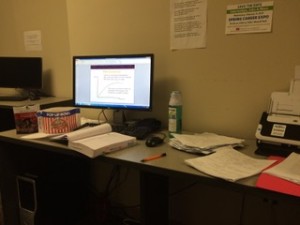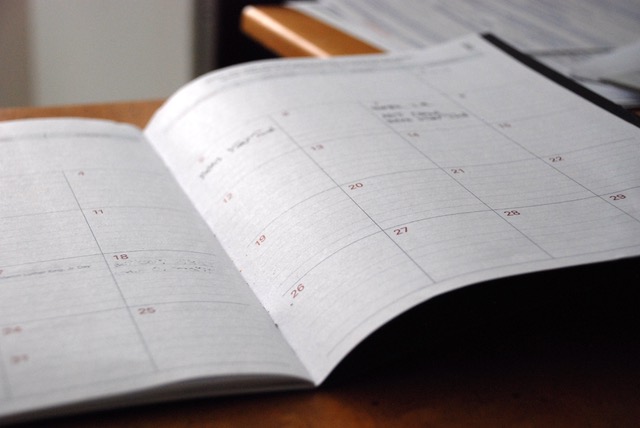During my master study at Boston University, taking an exam was not quite my favorite thing. I remember how stressful it was for me during midterm and final weeks. I enjoyed every class, and all the problem sets due every week (well, the problem set may not be really enjoyable at some point). However, when it came to an exam, I struggled to handle the anxiety. The uneasy feeling stayed with me after taking an exam, due to my worries about “How did I make it?”, “I wish I had learned more about X and Y,” and “Stupid me, I should have studied better.”
In this article, I would like to share my personal experience and some key takeaways from taking many exams throughout the semester during my master degree. Knowing how to prepare for finals properly would be one way to avoid stress and nail every single one of your exams. More than that, knowing yourself how to handle your reaction to every circumstance related to the exam is also important. I tried to manage my stress level when I had a series of exam throughout the week. In my program, we had the midterm and final exams during the week.
Time management I always try to avoid being an all-nighter. Although the Mugar Library at Boston University is usually open 24 hours during the exam weeks, I try not to stay there all night long. There were times I stayed late at the library until 3 AM, and I got dizzy the whole morning (because of sleep deprivation). It might work for some people, but I’m sure that it does not work for me. I managed to create a balanced study plan and schedule, especially during the final weeks. Usually, throughout the semester, I scheduled all my classes, problem sets, readings and office hour to my google calendar. It is good to know you already allocate for productive activities but adding fun stuff and work out at the gym made my schedule more balanced and healthy.
I always try to avoid being an all-nighter. Although the Mugar Library at Boston University is usually open 24 hours during the exam weeks, I try not to stay there all night long. There were times I stayed late at the library until 3 AM, and I got dizzy the whole morning (because of sleep deprivation). It might work for some people, but I’m sure that it does not work for me. I managed to create a balanced study plan and schedule, especially during the final weeks. Usually, throughout the semester, I scheduled all my classes, problem sets, readings and office hour to my google calendar. It is good to know you already allocate for productive activities but adding fun stuff and work out at the gym made my schedule more balanced and healthy.
Getting a good night sleep before the exam made me more relaxed and not in a hurry. In my experience, what did not work for me was having no sleep at all. It impaired my reasoning and memory, and I did not perform well. When you have no rest at all and try to cover all materials, there is a level of stress to handle and the adrenaline to keep looking at the time, which contributes to more anxiety.
Cramming causes test anxiety
According to this article on what causes test anxiety, we tend to experience test anxiety when we mostly procrastinate. Quoting from the article, “This pattern of avoidance leads to a vicious cycle: Procrastination leads to last-minute cramming, which leads to anxiety, which leads to self-doubts, which leads to excessive anxiety during a testing situation, which may lead to the inability to remember or think logically.” Poor performance on an exam might lead to increased pressure oneself, especially if the outcome is really important. Hence, knowing and willing to follow some guidelines and well-established  practice can overcome the test anxiety.
practice can overcome the test anxiety.
Minimize distraction & maximize practice-testing
I stopped being social during the exam, meaning no social media and getting out with friends (unless we go to the library together). I stopped cooking for the whole week and routinely had my lunch dining out at the cafeteria near the library (with the same menu of Panda Express’ orange chicken). I also listened to some instrumental music to keep me focused. The objective is to get me focused and minimize distraction; therefore, it will be more likely to retain information while studying.
I try to finish all my readings during courses, so I just have to review them all during my exam preparation. All I had to do is redo the problems sets over and over again, which include statistics, microeconomics, macroeconomics, and econometrics. My strategy is to prepare flash cards and practice some problem set to test myself out. What I found not effective for exam preparation are re-reading, highlighting and summarizing of reading materials, which should be done during courses (and not a week before the exam). The more pages left to be read during the exam preparation, the more anxious I became. Try to finish all your reading materials so you will just have to review your summary or flash cards.
Say yes to cardio & no to cramming
Allow yourself to allocate your time to exercise. Although my campus was accessible to running track near Charles River, there were times when I was just lazy to get out of my library spot (which thankfully I was lucky to get during exam seasons). Then what worked for me was that I scheduled a gym session first thing in the morning at Fitness dan Recreation Center before I started studying at Mugar Library. I had to be strategic by coming early during the day since the gym area was always occupied by students during exams week.
 I also had a library break every one hour or so. I either went for a walk for 10 minutes, eating snack bar or chocolate or just play piano near the library (I thank www.streetpianos.com). I just learned about an app to remind you of having a break. This Pomodone App will work as a timer and remind you when to start and pause your work activity. It refers to Pomodoro Technique which is a time management method developed by Francesco Cirillo in the late 1980s.
I also had a library break every one hour or so. I either went for a walk for 10 minutes, eating snack bar or chocolate or just play piano near the library (I thank www.streetpianos.com). I just learned about an app to remind you of having a break. This Pomodone App will work as a timer and remind you when to start and pause your work activity. It refers to Pomodoro Technique which is a time management method developed by Francesco Cirillo in the late 1980s.
I hope this article is useful for you in preparing your exams. For you who just made your midterm exams, you should be proud of yourself! One thing I learned from my master study is that I try to balance myself between being an ambitious or high achiever and being kind to myself. Don’t punish or blame yourself when you feel like not acing the exam. Try to embrace every step that you took because there is always room for improvement. Things already happened and the best thing is to take some lessons learned. Seven times fall, stand up eight.










